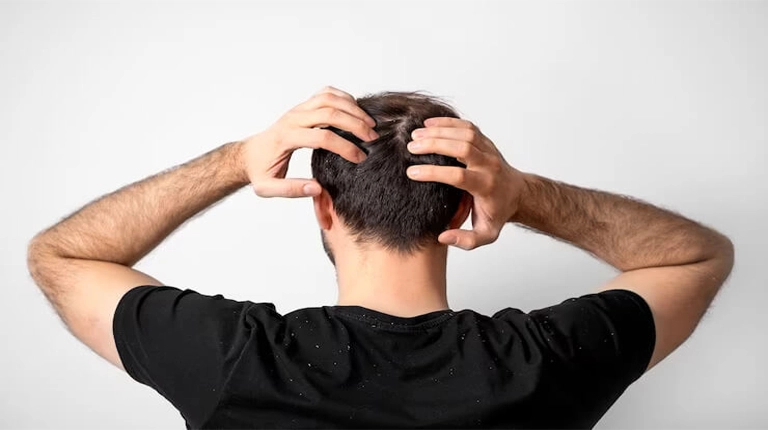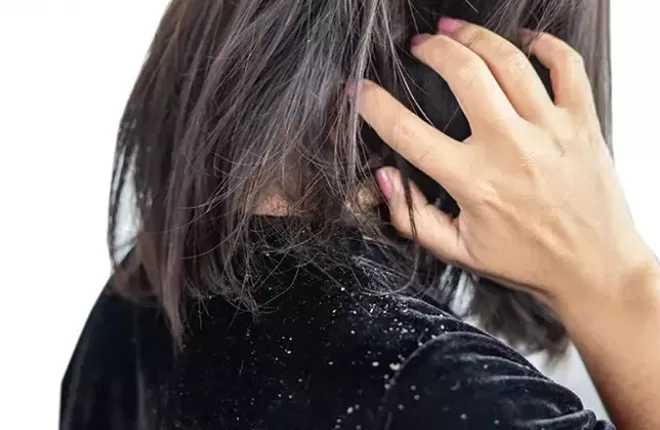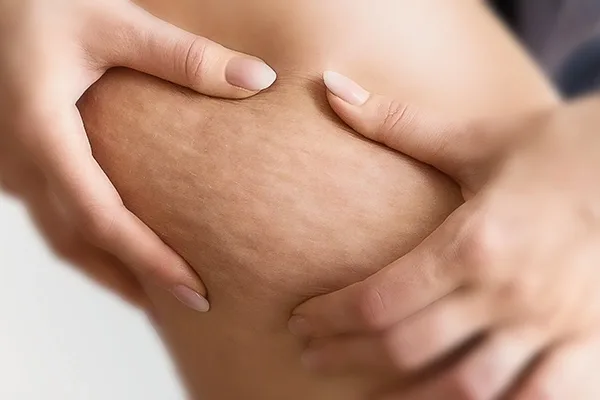What Is the Best Dandruff Treatment in Dubai? Top Solutions for a Flake-Free Scalp
Struggling with dandruff? The best dandruff treatment in Dubai combines medical-grade solutions and home remedies for effective relief. Key approaches include:
- Anti-dandruff shampoos with zinc pyrithione, ketoconazole, or selenium sulfide.
- Scalp hydration using coconut, tea tree, or argan oil.
- Apple cider vinegar rinses to restore scalp balance.
- Reducing stress through mindfulness and exercise.
- Healthy diet rich in omega-3s, zinc, and B vitamins.
If dandruff persists, consult a dermatologist for specialized treatment.
An itchy scalp and embarrassing flakes are frustrating, but not impossible to deal with. After all, dandruff afflicts millions of people around the world. Even though it is not a medical condition, it makes a person feel awkward, irritated, and self-conscious. Here are some simple steps to help reduce dandruff and keep your scalp healthy, hydrated, and flake-free. Here we walk you through the most effective tips and tricks known to man for reducing dandruff for good.

What Causes Dandruff?
Before discussing solutions, it’s essential to know what causes dandruff. The most common reason for dandruff is seborrheic dermatitis. Seborrheic dermatitis leads to the production of too much oil on the scalp. Such an overproduction leads to the multiplication of skin cells, which then die and fall off, thus leading to white or yellowish flakes. there are many other causes of dandruff, which are:
- Dry skin: Central heating and cold weather can keep your scalp dry and flaky.
- Fungal growth: Malassezia is a yeast-like fungus that lives on your scalp. However, overgrowth of these fungi can irritate the skin and cause dandruff.
- Stress: The high-stress level can activate flares of dandruff for a few individuals.
- Sensitivity to hair products: Occasionally, wrong products can cause an allergic reaction on the scalp.
Tips to Bid Goodbye to Dandruff
Now that you have an idea of the causes of dandruff, let’s look into the practical steps you can take to control and minimize the symptoms.
Anti-Dandruff Shampoo
The best treatment of dandruff begins with the right shampoo. Keep an eye out for products containing active ingredients like:
- Zinc pyrithione: It has antibacterial and antifungal properties. It controls the fungus known as Malassezia.
- Ketoconazole: An antifungal medication that acts to decrease the amount of yeast accumulation on your scalp.
- Coal tar: This substance slows down the rate of production of skin cells and thereby stops the dead cells from collecting.
- Selenium sulfide: It reduces the number of skin cells and eases itching and flaking.
Apply enough shampoo to your scalp to adequately clean it, let it sit for a few minutes, and then rinse completely. You may have to repeat using the anti-dandruff shampoo several times a week to see an improvement.
Don’t over-wash your hair
One may think that washing the hair frequently can help remove dandruff. However, over-washing does the opposite – it aggravates the problem. The scalp has a natural oil that is taken out with frequent washing, making it dry and irritated. It is best to only wash your hair two to three times a week unless the scalp is oily. Sulfate-free shampoo should be mild so it does not aggravate the irritation.
Hydrate Your Scalp
A dry scalp flakes more easily, so the utmost importance lies in moisturizing. Find scalp treatments and scalp oils that are hydrating and easy on the skin. Among the many natural oils that go particularly well on your scalp, these are included as follows:
- Coconut oil: Coconut oil contains fatty acids that help moisturize and nourish your scalp.
- Tea tree oil: The antifungal and antibacterial properties can help fight the fungus responsible for dandruff.
- Argan oil: Rich in vitamin E and antioxidants, it hydrates the scalp yet is not greasy.
Massage a few drops of the preferred oil into your scalp and leave it on for 15 to 20 minutes before washing it out. Preferably, test each oil or product on a small area to avoid allergic reactions.

Use Apple Cider Vinegar Rinses
One of the popular folk remedies for dandruff is the use of apple cider vinegar due to its acidity it helps in assisting your scalp to restore and bring balance to its normal pH. The acidity does this by breaking down the dead skin cells, decreasing flake buildup.
To apply ACV as a scalp treatment:
- Combine equal parts of apple cider vinegar and water.
- Shampoo your hair, then apply the solution to your scalp and massage it gently.
- Leave it on for a few minutes, then rinse off with cool water.
Use this treatment once or twice a week to keep dandruff at bay.
Control Your Stress Levels
Another main contributor to dandruff flare-ups is stress. High levels of stress cause the body to produce a more inflammatory response, which irritates the scalp. Reducing stress levels in your daily life may help prevent flare-ups of dandruff. Some of these practices include:
- Practice meditating or mindfulness exercises
- Do deep breathing or some yoga
- Exercise regularly for the release of endorphins.
- Sleep well for your body to heal and regenerate.
Avoid Harsh Hair Products
Hair products in the form of gels, hairsprays, or even styling creams can cause irritation in the scalp and result in dandruff. They could also have alcohol or fragrances that dry up or may even inflame the skin. Instead, look for gentle, hypoallergenic, or even particularly sensitive scalps.
Maintaining a Healthy Diet for Anti-Dandruf Effects
Your diet plays a very important role in the health of your skin, and scalp included. A good diet, rich in vitamins and minerals and healthy fats, moisturizes your scalp and reduces irritation. Some nutrients that significantly support the health of your scalp include:
- Omega-3 fatty acids: These fatty fish such as salmon, walnut, and flaxseed include healthy fats that keep moisture in the scalp in check.
- Zinc: Low levels of zinc have been linked with dandruff; foods rich in zinc include pumpkin seeds, chickpeas, and cashews.
- Vitamins B: Biotin, niacin as well as other B vitamins. Improve healthy skin and hair. Excellent sources include whole grains, eggs, and leafy greens.
Brush Your Hair Regularly
Brushing your scalp regularly helps in maintaining cleanliness because natural oils from the scalp to the hair end will distribute evenly. It will avoid the collection of dead skin cells on the scalp, thereby giving it a healthier flow. Use a soft bristle brush for the best results and to avoid further damage as well.

When To Consult A Doctor about Dandruff
If your dandruff still persists after trying home remedies and over-the-counter treatments, it could be a symptom of a deeper condition, such as psoriasis or eczema. If this is accompanied by hair loss, redness, and swelling, it is worth consulting a dermatologist in order to be properly assessed and treated.
Final Thoughts: Dandruff Treatment in Dubai
Fighting against dandruff does not have to be a chronic, recurring battle. With such simple tips, sticking to a routine is sure to help reduce flakes, ease irritation, and get that scalp back into its normal healthy state. From using the right shampoos to handling stress, and embracing natural remedies such as apple cider vinegar, and essential oils, there are many, many ways to quit giving in and goodbye to pesky, itchy scalps forever.
Remember, everyone’s scalp is a different story, so this will probably take some trial and error before finding what works best. Still, with a little patience and care, a flake-free scalp, and a fresh confident look every day, can become a reality.






